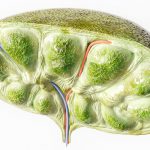 Despite a dramatic increase in blood cholesterol levels for the past five decades, a new University of Pittsburgh-led study shows that the Japanese have avoided driving up their heart disease-related death rates—contrary to expectations.
Despite a dramatic increase in blood cholesterol levels for the past five decades, a new University of Pittsburgh-led study shows that the Japanese have avoided driving up their heart disease-related death rates—contrary to expectations.
In fact, there’s actually been a continuous decline in mortality from coronary heart disease (CHD) in the Japanese since the 1970s.
“This is a perplexing discovery,” said Akira Sekikawa, M.D., Ph.D., the epidemiologist at the University of Pittsburgh Graduate School of Public Health who led the study. “You’d expect to see an increase in heart disease, so there must be something unique about the Japanese that is protecting them. And perhaps it’s something the rest of us can learn from.”
Historically, Japan is known to have a low heart disease rate. The Seven Countries Study, the first international cardiovascular epidemiological study conducted in the 1960s, showed mortality from CHD in Japan to be among the lowest in the world. This was largely attributed to very low levels of blood cholesterol in this population. As its citizens adopted a more Westernized lifestyle, blood cholesterol levels in Japan markedly increased for the past 50 years, and the current levels are higher than in the U.S.
Meanwhile, the study tracked a continuous decline in heart disease in the U.S. and other Western countries since the 1970s, attributed to a continuous fall in blood cholesterol along with other favorable changes in risk factors, such as a decline in blood pressure and smoking rates, as well as improved treatment of heart disease. Japan is the only developed country where blood cholesterol levels markedly rose. Moreover, levels of blood pressure and smoking rates, especially in men, have constantly been higher in Japan than in the U.S. Yet currently, Japan has the lowest CHD rates, with CHD mortality 67 percent lower in men and 75 percent lower in women compared to the U.S.
“So what’s different about the Japanese? It’s unlikely to be their genetics – Japanese-Americans experience a dramatic increase in heart disease rates, so it seems to be a protective factor unique to Japanese people living in Japan,” said Dr. Sekikawa. “That leads us to diet.”
Compared to the U.S., the Japanese diet is 10 times higher in fatty acids found in fish, and 20 times higher in plant compounds found in soy. The compounds found in these foods are significantly associated with lower incidence of cardiovascular disease in Japan.
Dr. Sekikawa noted that recent clinical trials conducted in Western countries found little benefit to fish oil supplements, but those trials didn’t approach the consumption levels of the Japanese people. The largest clinical trial of consuming a “high dose” fish oil supplement in Japan on top of high consumption of fish found a large benefit in reducing heart disease.
“We need to research whether we can boost fish oil supplementation in Western diets to the point that they reach the levels consumed by the Japanese – and see if there is a corresponding heart health benefit,” said Dr. Sekikawa.







